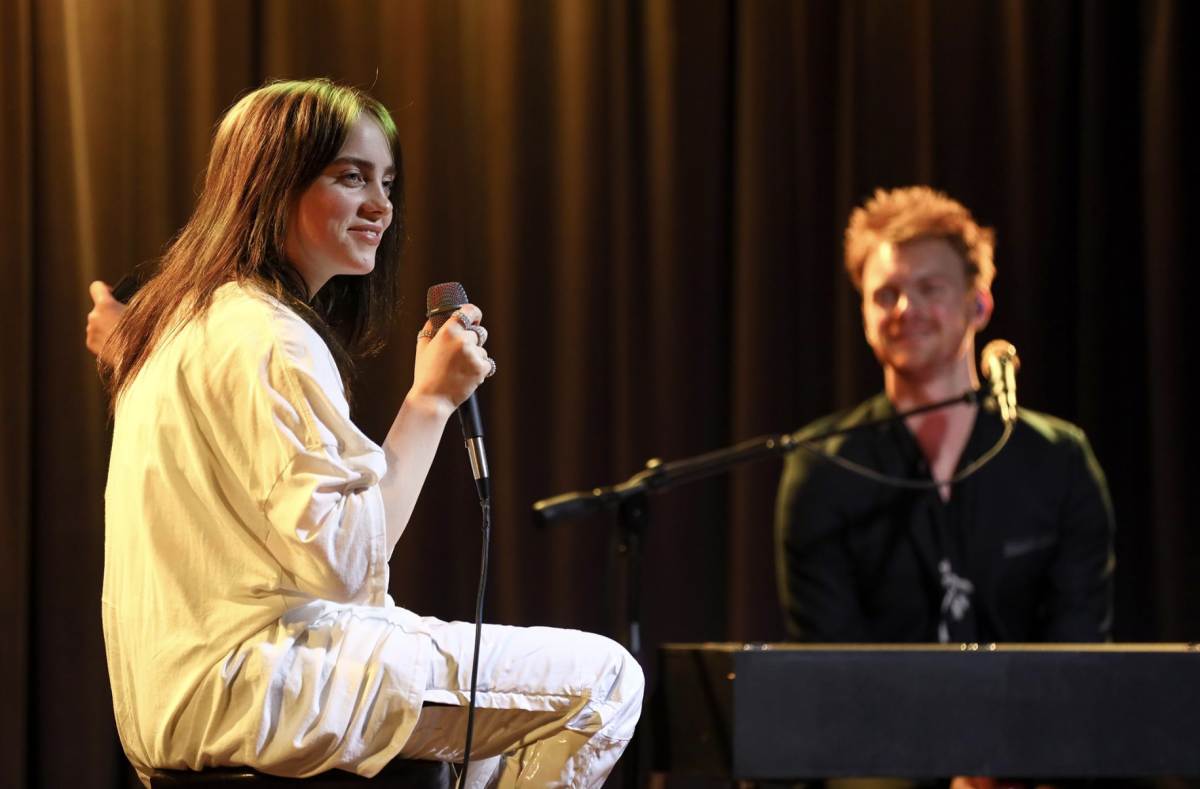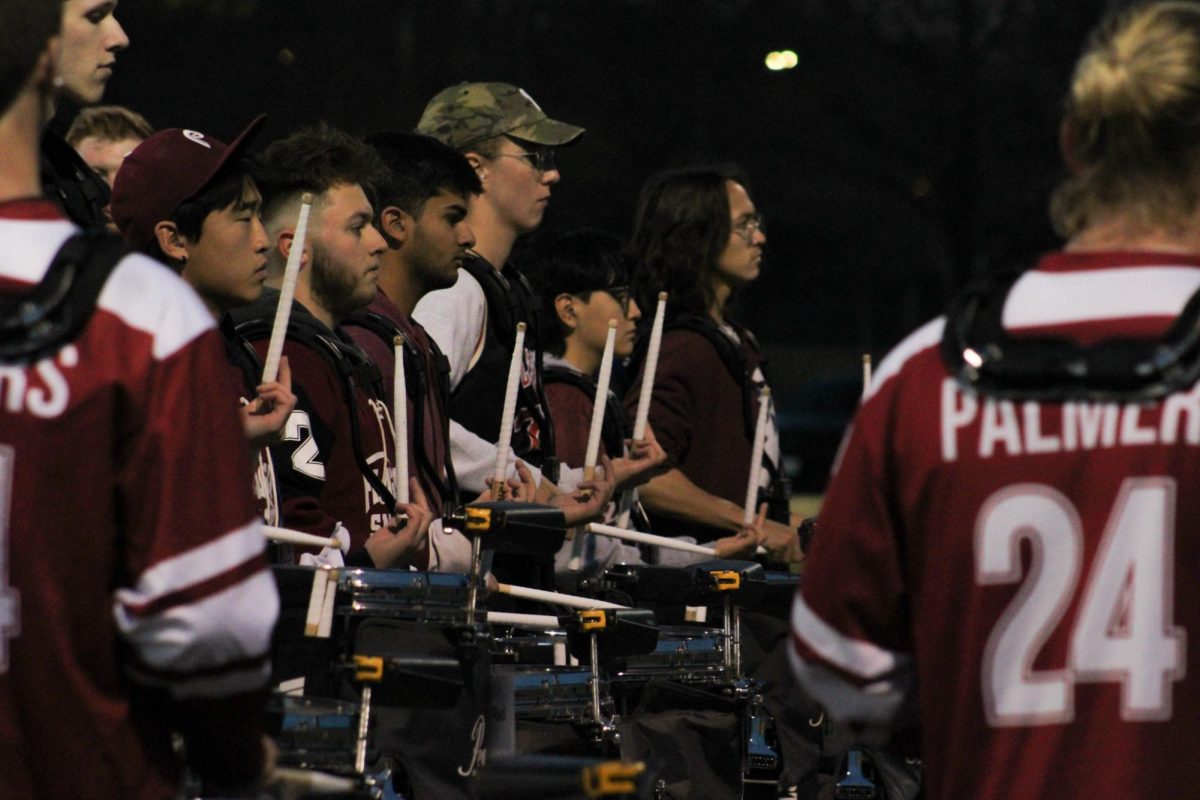
Name one artist since the dawn of the 21st century that possesses the same ingenuity, honesty, audacity, bravura and transcendence as Kanye West. A perfect manifestation of a carnal id and a nakedly soulful superego, West never shows restraint. As he operates on a mental plane so far removed from the average human, there’s never a moment on any track in his discography that isn’t 100 percent himself.
Every ugly outburst and honest screed acts as a unique statement wholly his own. He acknowledges his insecurities, yet chooses not to bury them deep within his psyche. Instead, he puts them on display, unapologetically, and dares the listener to judge him. His seventh solo project, “The Life of Pablo,” acts less like a Kanye West album and more like a Kanye West anthology – a musical anthology of a person’s being. “Pablo” is inextricably linked to himself and all of the beautiful, bruised, incensed, righteous, witty, messianic poetry that that designation entails.
On the heavenly “Ultralight Beam,” West opens the album on a prayer led by a child. “We don’t want no devils in the house,” she preaches. “Hallej–hand over Satan.” Both an announcement of West’s newfound family commitment as well as a pre-emptive rejection of sins he knows he’ll commit again, “Ultralight Beam” acts as a purgation of his past self, even while he remains of cognizant of the qualities that granted him success.
Chance the Rapper – a performer whose unbridled optimism tempered by middle class insecurity often acts as both his greatest strength and weakness – turns in a sublime vocal performance on this track. One of West’s most underrated gifts is his ability to flesh out the talents of artists who otherwise have difficulty with their search for a clear voice. Although I thought I never wanted to hear Chris Brown’s weaselly croon ever again, West once again demonstrates his ability on “Waves” to draw out the best in lesser artists as he has done in the past with the likes of Chief Keef and Fergie.
Every guest feature on “Pablo” services West’s larger self. All voices are filtered through his own artistic perspective. On the downtrodden funeral march “FML,” we don’t hear The Weeknd’s voice; we hear one of many manifestations of Kanye West as he speaks through the mouth of another. Do not mistake West’s disinterest with the upholding of traditional hip hop decorum for a lack of respect. “Yeezy” simply exists to express his own creative vision and to make the statements that intrigue him most. Anything less is compromise – an act he never intends to commit.
That no-holds-barred “I am that I am” mentality extends to when he’s at his ugliest. On “Famous,” West once again makes insufferable white nerds clutch their pearls with his playful use of King Kong imagery as he raps about his still-high chances with Taylor Swift. Meanwhile, he shares an anecdote from the first half of “Father Stretch My Hands” about a model and some bleach that is, alas, far too graphic for what can be discussed in this publication.
In the last track of Nirvana’s final album, “MTV Unplugged in New York,” there’s a moment toward the end where Kurt Cobain sighs as if ready to crumble into ash at any moment. On “Pablo,” West takes that small sigh of exasperation and turns it into a prolonged, silent scream that bubbles deep within his throat. On “Real Friends,” West expresses soul-crushing isolation even amongst his closest loved ones and on “No More Parties in LA” he joins forces with Kendrick Lamar – perhaps the yin to his yang and the only one close to a rival – to bemoan the soullessness of endless debauchery. He’s too old to enjoy the things that once gave him pleasure and now he’s just about done.
“Pablo” almost feels like a retirement album, although I (and a million others) would be heartbroken if that proved true. Like the Titan Atlas, the weight of the world rests on his shoulders and if he has never buckled before, I doubt he’ll buckle now, regardless of the stormy weather or ill-advised Twitter rants. On an earlier version of the song “Wolves,” Kanye sang through Vic Mensa: “You’re much too good to be true.” On the version that made it to the album, West’s optimism faded. Now, he’s “surrounded by the f****** wolves.”
From both a musical and thematic standpoint, it’s difficult to place “Pablo” in context with Kanye West’s other albums. Ask six people what springs to mind and they’ll give you six answers. Is it the choirboy enthusiasm of “The College Dropout?” Is it the portrait of anxious exuberance presented by “Late Registration?” Is it the delicate balance between fun and adult responsibility as defined by “Graduation?” Is it the wistful, auto-tuned melancholy of “808s and Heartbreak?” Is it “My Beautiful Dark Twisted Fantasy’s” angelic portrait of a dissolving psyche amidst a restless new America or the hellish, revolutionary hedonism that “Yeezus” envisions? “The Life of Pablo” is both all and none of the above. It is West at his fullest expression of madness with the man and the music intertwined like a ballet.
Sure, you can call him a narcissist (and you’d be wrong, because pathological narcissists have basic difficulty with empathy and self-reflection; even a cursory glance at his work reveals a heart three sizes too large for his body), yet you can’t begrudge him for saying he’s “a creative genius and there’s no other way to word it.” Because he’s absolutely right. This man recorded his first EP with his jaw wired shut. If that impediment didn’t stop his transformation into the greatest artist alive, do you think you will?
Nate Taskin can be reached at [email protected].



















